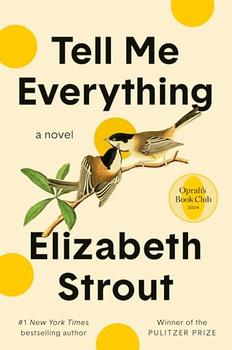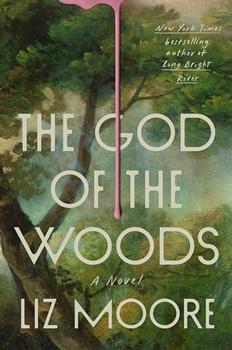Summary | Excerpt | Reviews | Beyond the Book | Read-Alikes | Genres & Themes | Author Bio

Stories
by Meron HaderoThis article relates to A Down Home Meal for These Difficult Times
 In Meron Hadero's A Down Home Meal for These Difficult Times, the main character of "Mekonnen aka Mack aka Huey Freakin' Newton" takes his titular nickname from Huey P. Newton, one of the founders of the Black Panther Party. The Black Panthers were a group of revolutionaries focused on Black liberation in the 1960s-70s. Hadero's character Mekonnen takes Newton's name when he joins a clique of teens in Brooklyn who are interested in studying Black history and fighting racism.
In Meron Hadero's A Down Home Meal for These Difficult Times, the main character of "Mekonnen aka Mack aka Huey Freakin' Newton" takes his titular nickname from Huey P. Newton, one of the founders of the Black Panther Party. The Black Panthers were a group of revolutionaries focused on Black liberation in the 1960s-70s. Hadero's character Mekonnen takes Newton's name when he joins a clique of teens in Brooklyn who are interested in studying Black history and fighting racism.
Huey Newton was born in Monroe, Louisiana in 1942 and grew up in Oakland, California. While attending Merritt College, he met Bobby Seale, and the two formed what was originally called the Black Panther Party for Self-Defense in 1966. They intended for the group to be a means of liberating the Black working class from white supremacist institutions like the police and local government. The Panthers built their ideology on the tenets of Marxism, evident in the Ten-Point Program Newton and Seale wrote as the group's foundational document, which demanded "an end to the robbery by the capitalists of our Black Community." Newton served as the Party's Minister of Defense.
The Panthers were well-known for carrying weapons openly to protests and other events. They viewed their role as defenders of the Black community and instituted patrols where they followed the police around Black neighborhoods, monitoring their activity. During one of these patrols in 1967, Panthers were involved in a shootout with police, and Newton was arrested for killing an Oakland police officer named John Frey. The subsequent 1968 trial was a legal debacle, with multiple witnesses being charged with contempt for lying on the stand. When Newton testified in his own defense, he used the opportunity to excoriate the racist practices of the Oakland police department. He also denied shooting Officer Frey. The jury convicted Newton of manslaughter rather than murder, and the decision was overturned in 1970, with a judge ruling that the jury in the case had not been given sufficient instructions.
The trial brought significant attention to Newton and the Panthers, with "Free Huey" becoming a rallying cry among supporters. However, after he was freed from prison, Newton's popularity waned, due in part to factional in-fighting, including a public rift with Eldridge Cleaver, the Party's Minister of Information. In 1974, Newton fled to Cuba after he was accused of murdering a sex worker. When he returned to the US in 1976 he was charged with this murder but walked free after two mistrials. In 1980, Newton earned a PhD from the University of California at Santa Cruz with his dissertation, War Against the Panthers: A Study of Repression in America. His legal and personal battles continued, and in 1989 he was sentenced to six months in prison for taking money from the public fund intended for the founding of a school. In August of 1989, Newton was murdered during an alleged drug deal at the age of 47.
Portrait photo of Huey Newton by Blair Stapp, courtesy of Yanker poster collection, Library of Congress
Filed under People, Eras & Events
![]() This article relates to A Down Home Meal for These Difficult Times.
It first ran in the June 8, 2022
issue of BookBrowse Recommends.
This article relates to A Down Home Meal for These Difficult Times.
It first ran in the June 8, 2022
issue of BookBrowse Recommends.




Your guide toexceptional books
BookBrowse seeks out and recommends the best in contemporary fiction and nonfiction—books that not only engage and entertain but also deepen our understanding of ourselves and the world around us.